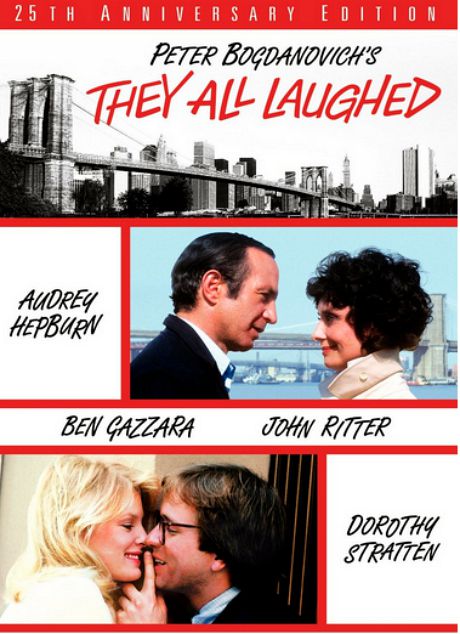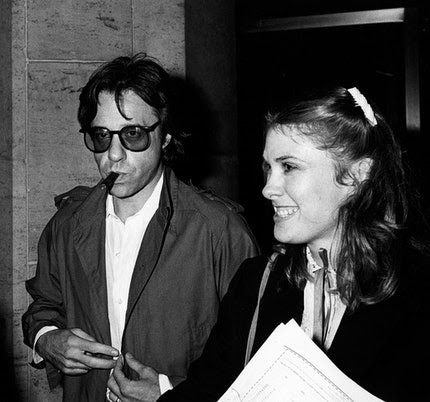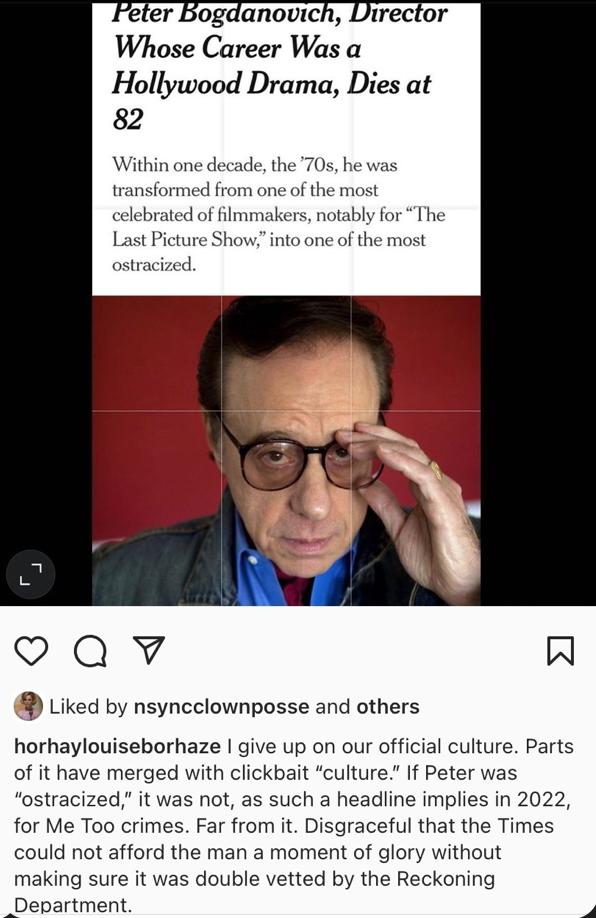Posted on 8.10.15: As mentioned I caught two Peter Bogdanovich movies last night — one a nimble, old-fashioned Bogdanovich-directed screwball comedy and the other a documentary that doesn’t feel well-ordered or smooth enough.
But despite its faults, the doc — One Day Since Yesterday: Peter Bogdanovich and the Lost American Film — is far more affecting. Because it’s a story about promise, loss and tragedy, and particularly how life can sometimes knock your lights out at the drop of a hat. And the way it’s been made doesn’t get in the way of that.
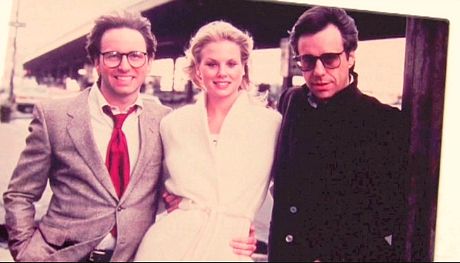
(l. to.r) They All Laughed costars John Ritter, Dorothy Stratten, director Peter Bogdanovich during filming in the spring of 1980.
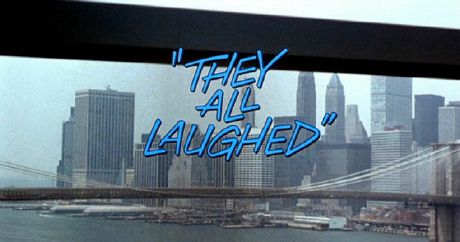
In his late ’60s-to-early ’70s directing heyday (Targets, Directed by John Ford, The Last Picture Show, What’s Up Doc, Paper Moon), Bogdanovich had the world at his feet. Plus a cocky swagger thing going on. Every time you saw him on TV (he visited the Dick Cavett Show two or three times if not more) Bogdanovich always seemed dryly amused, a bit smirky…the gifted bon vivant.
But since the tragedy of They All Laughed (’81) and more particularly the gruesome murder of poor Dorothy Stratten, the film’s 20 year-old costar for whom Bogdanovich had fallen head over heels, followed by his financially disastrous decision to buy They All Laughed from an unenthusiastic 20th Century Fox in order to save it from being shelved, some essential spark began to slowly drain out of him. Or so it seemed.
Bogdanovich essentially risked all to validate They All Laughed because he needed as much of the world as possible to know what an inspired choice he’d made in hiring Stratten and how good she could be. He did this as a tribute to her memory and what they had together. Understandable but unwise. Bogdanovich admits this in the doc.
Bogdanovich rebounded with Mask (’85), of course, but then he got into a major fight with Universal over their decision to not use some Bruce Springsteen songs, which led to Bogdanovich filing a $19 million lawsuit against the studio. In so doing he fortified a rep as an imperious guy who wouldn’t collaborate and could almost be counted on to be a pain in the ass.
Bogdanovich has kept his hand in over the last 25 years with the passable-to-underwhelming Texasville, Noises Off, The Thing Called Love and The Cat’s Meow (among other films), with his Sopranos supporting role as a fellow New Jersey psychiatrist and paternal pal of Dr. Jennifer Melfi’s, a respected four-hour Tom Petty doc (’07) and more recently with She’s Funny That Way (which opens on 8.21), but he hasn’t really hasn’t had “the touch” (or what feels like the touch to me and some others) for nearly 35 years now.
It’s a hard thing to acknowledge but sadly true. Andrew Sarris used to say that artists have just so much psychic essence, and when the bottle is empty there’s nothing they can do about it and except recycle and reshuffle and hope for the best.
I know that it seems as if They All Laughed was the last real high point as well as the beginning of a big downturn. I also know that since the ’90s Bogdanovich has more and more come to resemble a droopy basset hound in dark-framed glasses — an artist eclipsed by grief, haunted, all tapped out. Let’s not even get into his decision to begin a discreet paternal relationship with Dorothy’s younger sister, Louise, when she was 14, and then marry her in ’88 when she was 20 and he was 49. Don’t go there. Just leave it alone. They divorced in ’01.
